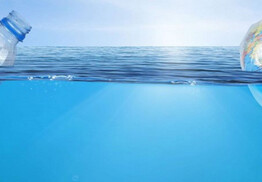The contribution on single use packaging made of plastic or aluminium (or a multi-material containing plastic or aluminium), which was introduced in Portugal by the State Budget Law for 2021 (approved by Law no. 75-B/2020 of 31 December 2020) and regulated by Ministerial Order no. 331-E/2021 of 31 December 2021, came into force from 1 July 2022 (for single-use packaging made of plastic or a multi-material containing plastic).
On 30 December 2022, Ministerial Order no. 312-C/2022 (the Ministerial Order) was published, amending Ministerial Order no. 331-E/2021, and came into force on 31 December 2022.
As a result of the new amendments, the contribution on single use packaging made of aluminium (or a multi-material containing aluminium) will apply from 1 September 2023 (instead of applying, as was initially foreseen, from 1 January 2023).
Furthermore, single-use beverage packaging is excluded from the contribution’s scope to avoid a potential distortion of competition between beverages supplied in shops and those supplied through vending machines.
To provide guidance on the procedures for implementing and complying with the contribution, the Portuguese Tax Authorities published Administrative Ruling no. 35.189 of 3 January 2023 (the Administrative Ruling), which amended and replaced Administrative Ruling no. 35.181 of 21 December 2022 (which, in turn, amended and replaced Administrative Ruling no. 35.174 of 10 August 2022; which, in turn, had amended and replaced Administrative Ruling no. 35.170 of 1 July 2022).
In addition to the Administrative Ruling, the Tax Authorities also published FAQs about the contribution, in particular to clarify several questions raised by economic operators, as well as FAQs specifically addressing the contribution’s VAT implications.
In fact, the Tax Authorities have made it clear that single-use packaging stocks acquired by economic operators before 1 July 2022 are not subject to the contribution. The Portuguese Environmental Agency (Agência Portuguesa do Ambiente – APA) also published its own FAQs; with one of the questions addressing the date by which the contribution for single-use packaging made of plastic applies.
However, the FAQs published by both the Tax Authorities and the Portuguese Environmental Agency have not yet been updated in accordance with the new Ministerial Order and Administrative Ruling.
According to the Portuguese Environmental Agency, if a single-use packaging item consists of an aluminium container and a plastic lid, and these are sold together, then the contribution is due from the date of entry into force of the contribution applying to single-use packaging made of plastic (i.e. 1 July 2022), given the use of the plastic. Conversely, if the container and the lid are sold separately and only the lid contains plastic, then the contribution will only be due from the date of entry into force of the contribution applying to single-use packaging made of aluminium (i.e. 1 September 2023). As such, the material of the container is the most significant factor in determining the date from which the contribution applies.
The Tax Authorities’ Administrative Ruling no. 35.189 of 3 January 2023 (Administrative Ruling)
The Administrative Ruling identifies the contribution’s scope of application and defines the following terms: packaging, primary packaging, service packaging, single-use packaging, multi-material packaging with plastic, ready-to-eat meals, non-sedentary catering or drinking activity, a chargeable event, the chargeability of the contribution, release for consumption, taxable persons, an authorised warehousekeeper, a tax warehouse, the declaration of release for consumption (e-DIC), the competent customs office, import, export, dispatch and receipt.
The contribution is paid by:
- a producer or importer of single-use packaging with a head office or permanent establishment (PE) in mainland Portugal; or
- a purchaser of single-use packaging from suppliers with a head office or PE in another Member State, or in the Autonomous Regions of the Azores and Madeira.
Authorised warehousekeeper status
The Administrative Ruling clarifies that, except for importers who release single-use packaging for free circulation and consumption, those liable to pay the contribution must have the status of an authorised warehousekeeper and they are responsible for the reporting obligations, even for single-use packaging not owned by them.
The Administrative Ruling also provides the rules for the acquisition of the status of authorised warehousekeeper, the constitution of a tax warehouse, the types of tax warehouse and its operation, as well as the obligations of the authorised warehousekeeper.
Goods in Circulation Scheme
The circulation of single-use packaging is subject to the Goods in Circulation Scheme (approved by the Decree-Law no. 147/2003, of 11 July 2003).
According to the Administrative Ruling, the circulation of single-use packaging without the payment of the contribution takes place between:
- a tax warehouse and a place of exportation;
- a place of importation and a tax warehouse;
- a tax warehouse and a recipient located in another Member State of the European Union or in the Autonomous Regions (and vice versa); and
- tax warehouses.
Electronic declaration of release for consumption (e-DIC)
Entering and leaving a tax warehouse must always be declared through the completion of a declaration of release for consumption (or e-DIC) without a payment of the contribution by the authorised warehousekeeper. Where there is no release for consumption, the e-DIC is a mere registration document of entries and exits of tax warehouses, without the payment of the contribution.
Single-use packaging circulating between tax warehouses must be accompanied by a copy of the e-DIC without the contribution’s payment, and state the tax warehouse of destination.
The e-DIC is always processed electronically, with taxable persons being granted access to the customs area for electronic declarations on the Tax Authority’s website (Portal das Finanças), provided that they have the status of an authorised warehousekeeper.
The release for consumption of single-use packaging (the act by which the taxpayer voluntarily declares to the Tax Authority the elements that allow the assessment and payment of the contribution) must be formalised:
- through the processing of an e-DIC with the contribution assessment;
- through the customs import declaration, at the time of import, in the case of release for free circulation and consumption.
In both these cases, the declaration must include the Excise Duty Code IEC 1852 for single-use packaging made of plastic and the Excise Duty Code IEC 1853 for single-use packaging made of aluminium for the purposes of assessing the contribution, and should be included after the product’s NC code.
The e-DIC with the assessment of the contribution should be processed in the exits from the tax warehouse of single-use packaging intended for purchasers who do not have the status of an authorised warehousekeeper.
The e-DIC with the assessment of the contribution should be processed on a quarterly basis, and by the 5th day of the month following the end of each quarter of the calendar year in which the releases for consumption happened (for example: the e-DIC regarding releases for the consumption of single-use packaging in the first quarter of 2023 (January, February and March) would have had to be submitted by 5th April 2023).
For import operations, the customs rules on assessment, payment collection and deadlines will apply, as already foreseen in the applicable customs legislation.
Assessment and payment
The assessment of the contribution should be made electronically and automatically notified by the 15th day of the globalisation month (i.e. the month following the quarterly reporting period), by means of a message made available in the taxpayer's reserved area on the Tax Authority website’s Excise Duties platform.
Where it is not possible to notify in the way set out above, then the competent customs office will notify the taxable person, by post to his/her tax residence, the contribution assessment by the 20th day of the globalisation month.
The contribution must be paid by the 15th day of the second month following the quarter of the calendar year to which the assessment refers (e.g. if the e-DIC regarding releases for the consumption of single-use packaging in the first quarter of 2023 was submitted by 5th April 2023, then the assessment of the contribution would be electronically and automatically notified by 15th April 2023, and the contribution had to be paid by 15th May 2023).
Exemptions
According to Ministerial Order no. 331-E/2021, single-use packaging is exempt from the contribution provided it is:
› exported by the taxable person;
› dispatched or transported to another EU Member State by the taxable person or by a third party on his/her behalf;
› dispatched or transported to the Autonomous Regions of the Azores and Madeira; or
› used in a social or humanitarian context.
Except in the case of the exemption for single-use packaging used in social or humanitarian contexts, the exemptions are automatic, with an e-DIC being processed without assessment of the contribution (with the affixation of exemption code 1C12) only for the purpose of registering the single-use packaging leaving the tax warehouse. The circulation until the destination must be titled by the goods in circulation scheme and, only in the case of exportation, by the customs export document.
For an exemption for single-use packaging used in social or humanitarian contexts, an exempted e-DIC will be processed, i.e. an e-DIC with a contribution assessment and containing the exemption code 1P28.
Ancillary obligations
The amount of the contribution on single-use packaging must be clearly identified on the invoice.
The taxable person must communicate to the Tax Authorities, by the end of January of the year to which the contribution refers, the quantity of single-use packaging produced, imported or acquired, indicating the respective type (plastic, aluminium or a multi-material of plastic or aluminium) intended for consumption in mainland Portugal.
VAT
The contribution is part of the VAT taxable basis, and is applied at the standard VAT rate.
There is non-deductibility for Corporate Income Tax (CIT) purposes. So, economic operators, including caterers and drinks businesses, must pass on the contribution’s economic burden along the commercial chain, up to the final consumer, and may not deduct the contribution as an expense for CIT purposes.






